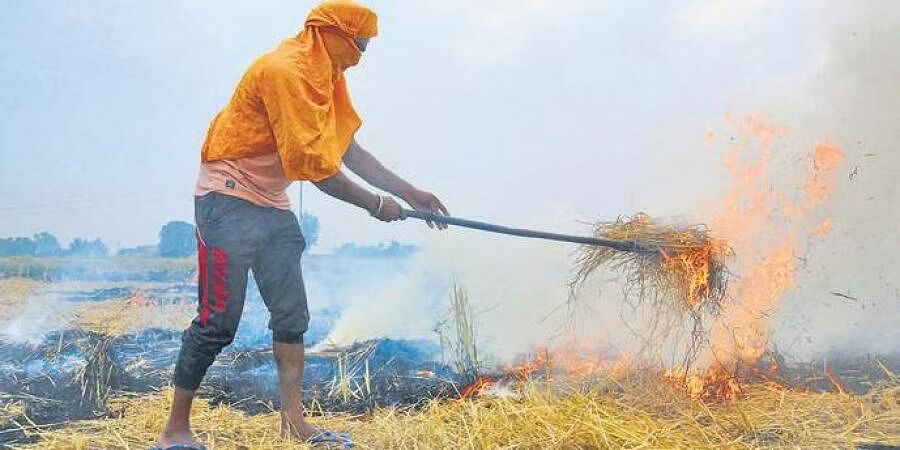Pathankot only district in Punjab with no farm fire so far this season

Chandigarh: At a time Punjab is witnessing a rising number of stubble burning incidents, Pathankot is the only district which has not seen a single farm fire so far this season.
It has become possible because of a massive awareness drive launched by the district administration against paddy straw burning, a senior agriculture official said.
The administration held awareness camps, launched a YouTube channel and formed WhatsApp groups of villagers that resulted in the cooperation of farmers in making the district free of farm fire, the official said.
Paddy straw burning in Punjab and Haryana is one of the reasons behind the alarming spike in air pollution levels in the national capital region in October and November.
"We had set a target this season that there should be no stubble burning incident in the district. And so far, no such incident has been reported," said Pathankot Chief Agricultural Officer Amrik Singh.
In the past, Pathankot witnessed a low number of farm fires.
The district administration of Pathankot was keen that there should be not even a single incident of crop residue burning this season which starts from September 15.
Pathankot, a border district, saw 28 farm fires in 2016, 12 in 2017, nine in 2018, four in 2019, 11 in 2020 and six in 2021.
Pathankot grows paddy over 28,500 hectares of land and generates around 1.35 lakh metric tonne of stubble every year.
The agriculture department found the solution to stubble burning through its use as fodder for milch animals and encouraged cattle owners, mainly nomad Gujjars, to collect it from fields.
Singh said the paddy growers are getting Rs 2,500 to Rs 3,000 per acre by selling crop residue to cattle owners, adding that it helped to a great extent in solving the problem of stubble management.
Before the start of harvesting season, officials of the agriculture department identified the hotspots where farm fires used to take place and persuaded the farmers of these areas not to set the crop residue on fire.
As many as 70 farm awareness camps were held to motivate farmers not to set the crop residue on fire and even pledges were administered against stubble burning, he said.
To ensure messages against stubble burning reach maximum farmers, the department also rolled out a YouTube channel, 'Meri Kheti Mera Maan'. More than 120 videos of experts highlighting the crop residue management machines were uploaded, Singh said, adding that more than 67,000 people have viewed them.
Moreover, WhatsApp groups of farmers at block level were also formed to encourage them not to burn the paddy straw, he said.
Apart from the awareness drive, as many as 201 crop residue management machines were also sanctioned, he said.
With this, 306 such machines are now available in the district for stubble management, said Singh.
Mobile vans were also deployed in the district to persuade farmers not to burn stubble, he said.
The official of the agriculture department also said school students were also made aware about the ill-effects of stubble burning.
Paddy straw burning in Punjab and Haryana is one of the reasons behind the alarming spike in air pollution levels in the national capital in October and November.
As the window for the cultivation of wheat (Rabi crop) is very short after the paddy harvest, farmers set their fields on fire to quickly clear off the crop residue.
Punjab generates around 180 lakh tonne of paddy straw annually.
Punjab witnessed 26,583 farm fires between September 15 and November 4.
The state recorded 71,304 stubble burning incidents in 2021; 76,590 in 2020; 55,210 in 2019; 50,590 in 2018; 45,384 in 2017; and 81,042 in 2016.



